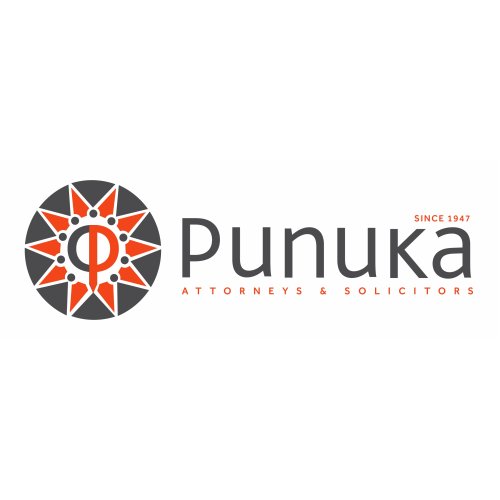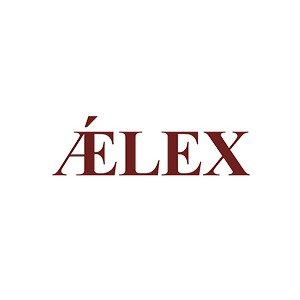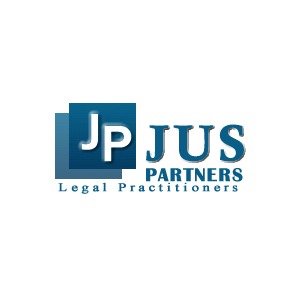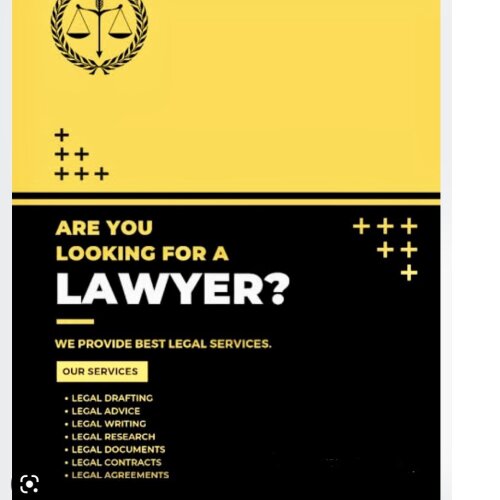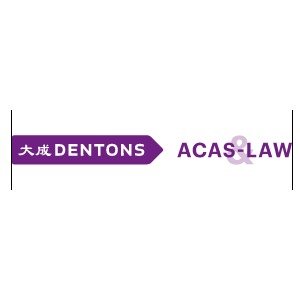Best Telecommunications and Broadcast Lawyers in Lagos
Share your needs with us, get contacted by law firms.
Free. Takes 2 min.
List of the best lawyers in Lagos, Nigeria
Legal guides written by Adeola Oyinlade & Co:
- Procedure and Requirements for Work Permit and Visas in Nigeria
- The Step-By-Step Procedure of How to Apply for Microfinance Bank License Online in Nigeria
- How to Ensure the Smooth Recognition and Enforcement of Foreign Judgments in Nigeria
Nigeria Telecommunications and Broadcast Legal Articles
Browse our 1 legal article about Telecommunications and Broadcast in Nigeria written by expert lawyers.
- Telecommunication Services in Nigeria: The Available Legal Rights and Remedies to Customers (Subscribers)
- Telecommunications services are essential to modern society, which facilitates global communication, business, and connectivity. In recent years, Nigeria's telecommunications business has developed and expanded greatly, owing to technology breakthroughs and regulatory reforms. However, in addition to these advancements, consumers frequently face issues such as network congestion, call dropouts, and insufficient... Read more →
About Telecommunications and Broadcast Law in Lagos, Nigeria
Telecommunications and Broadcast law in Lagos, Nigeria, encompasses the regulation of electronic communications networks and services including radio, television, and digital broadcasting. As a hub of innovation and business in Africa, Lagos plays a critical role in the telecommunications sector. Laws governing this field are designed to manage the allocation of the broadcast spectrum, licensing of service providers, consumer protection, and content regulation, among other aspects. Regulated by national and state authorities, these laws aim to foster competitive and efficient services, protect public interest, and promote the rights and duties of all stakeholders involved.
Why You May Need a Lawyer
In the dynamic field of telecommunications and broadcast, legal advice may be necessary for various reasons. Common situations where a lawyer might be needed include:
- Dispute Resolution: Whether contractual disputes between operators or conflicts with regulatory bodies, legal counsel can help navigate complex issues.
- License and Compliance: Obtaining necessary licenses and ensuring compliance with constantly evolving rules can be complex and arduous.
- Intellectual Property Issues: Broadcasting often involves dealing with content ownership and rights, necessitating expert legal advice.
- Merger and Acquisition: Any structural change in your operation may require careful legal evaluation and negotiation.
- Consumer Rights Protection: Both consumers and service providers may need legal support in cases of service disputes or data privacy concerns.
Local Laws Overview
Telecommunications and broadcast in Lagos are governed by a mix of national and state-level regulations. Key legal aspects to consider include:
- The Nigerian Communications Act: This federal law provides the framework for regulating communications services and facilities. It emphasizes licensing, fair competition, and consumer protection.
- Broadcasting Code: Under the National Broadcasting Commission, this code offers guidelines that shape broadcasting operations, content standards, and ethical compliance.
- Data Protection Regulation: Although more generally applicable, data privacy laws impact how telecommunications companies handle consumer information.
Frequently Asked Questions
What is the role of the Nigerian Communications Commission (NCC)?
The NCC is the national regulatory authority for the telecommunications industry in Nigeria, responsible for managing and regulating communications services, licensing operators, and ensuring the protection of consumer rights.
Do I need a license to operate a radio station in Lagos?
Yes, a license from the National Broadcasting Commission (NBC) is mandatory to operate a radio station legally in Nigeria. It involves meeting specific requirements and compliance with the broadcasting code.
How can I resolve a telecom service issue?
First, attempt to resolve the issue with your service provider. If unresolved, you can escalate the complaint to the NCC Consumer Affairs Bureau through their consumer complaints channels.
What are the data privacy rights for telecom consumers in Lagos?
Consumers have the right to privacy and protection of their personal data under the Nigeria Data Protection Regulation (NDPR). Companies must handle consumer data lawfully and transparently, with strict limits on data collection and use.
Is internet broadcasting regulated in Lagos?
Yes, internet broadcasting falls under the jurisdiction of the NBC, and anyone wishing to provide broadcasting services over the internet must comply with applicable regulations.
What constitutes illegal broadcasting in Lagos?
Illegal broadcasting involves transmitting content without the necessary licenses or violating broadcasting standards. Engaging in such activities can lead to penalties including fines and criminal charges.
Can foreign companies own telecommunications entities in Nigeria?
Yes, foreign ownership is permitted but subject to investment and operational regulations ensuring local content requirements and compliance with Nigerian laws.
How are mergers in the telecommunications sector regulated?
Mergers and acquisitions in the sector must comply with NCC guidelines and may require clearance from the Federal Competition and Consumer Protection Commission to ensure no anti-competitive practices result.
What are the consequences of non-compliance with telecommunications laws?
Non-compliance can result in penalties, including hefty fines, suspension or revocation of licenses, and potentially legal action from consumers or the government.
How can broadcasters ensure compliance with content regulations?
Broadcasters must align with the NBC Broadcasting Code's standards relating to content quality, ethics, language, and timing, among others, to avoid sanctions.
Additional Resources
If you require further information or assistance, consider consulting the following resources:
- Nigerian Communications Commission (NCC)
- National Broadcasting Commission (NBC)
- Nigerian Communications Act
- Lagos State Ministry of Science and Technology
- Nigeria Data Protection Regulation framework
Next Steps
If you're seeking legal assistance in telecommunications and broadcast, consider the following steps:
- Identify your specific legal issues and gather all relevant documentation.
- Search for legal professionals specializing in telecommunications and broadcasting law. It's beneficial to choose lawyers with experience in this sector.
- Contact legal associations or bar councils for referrals to qualified attorneys.
- Consult with potential lawyers about their services, fees, and approach to dealing with your legal matters.
- Once you choose a lawyer, work closely with them by providing detailed information to support your case or compliance needs effectively.
Lawzana helps you find the best lawyers and law firms in Lagos through a curated and pre-screened list of qualified legal professionals. Our platform offers rankings and detailed profiles of attorneys and law firms, allowing you to compare based on practice areas, including Telecommunications and Broadcast, experience, and client feedback.
Each profile includes a description of the firm's areas of practice, client reviews, team members and partners, year of establishment, spoken languages, office locations, contact information, social media presence, and any published articles or resources. Most firms on our platform speak English and are experienced in both local and international legal matters.
Get a quote from top-rated law firms in Lagos, Nigeria — quickly, securely, and without unnecessary hassle.
Disclaimer:
The information provided on this page is for general informational purposes only and does not constitute legal advice. While we strive to ensure the accuracy and relevance of the content, legal information may change over time, and interpretations of the law can vary. You should always consult with a qualified legal professional for advice specific to your situation.
We disclaim all liability for actions taken or not taken based on the content of this page. If you believe any information is incorrect or outdated, please contact us, and we will review and update it where appropriate.






